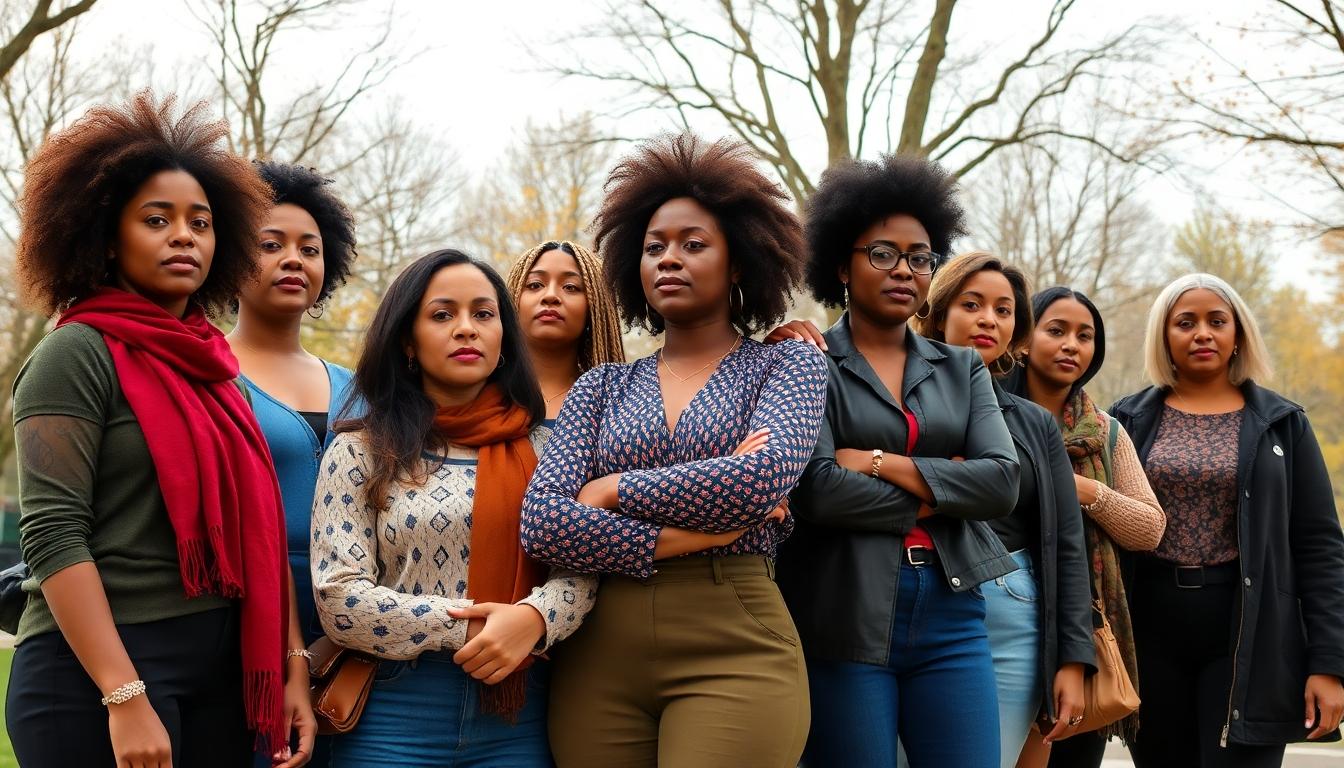Table of Contents
ToggleCultural feminism isn’t just another buzzword thrown around in academic circles; it’s a vibrant movement that celebrates the unique experiences and values women bring to society. Imagine a world where femininity is embraced, not shunned, and where women’s contributions are recognized as essential to culture. Sounds appealing, right?
Understanding Cultural Feminism
Cultural feminism emphasizes the importance and celebration of women’s experiences and contributions to society. This movement advocates for recognizing femininity as crucial to cultural development.
Definition and Key Concepts
Cultural feminism focuses on feminine values and perspectives, promoting their recognition within society. This viewpoint asserts that women possess unique qualities that should be honored and integrated into cultural and social frameworks. Key concepts include the importance of nurturing, empathy, and connection, which serve as foundations for shaping cultural narratives. By prioritizing these traits, cultural feminism seeks to dismantle patriarchal structures and foster a more inclusive environment for all genders.
Historical Context
Emerging in the late 20th century, cultural feminism arose as a response to the limitations of traditional feminism. Many early feminists recognized the need to address broader cultural issues that shaped gender roles. In the 1970s and 1980s, influential thinkers began to articulate the significance of female experiences within cultural discourse. This era witnessed the rise of women’s art, literature, and scholarship that challenged societal norms and highlighted women’s contributions. As this movement evolved, it expanded to encompass various cultural expressions, further solidifying its impact on modern feminist thought.
Key Figures in Cultural Feminism

Cultural feminism features a diverse array of theorists and activists who have significantly shaped the movement. These figures highlight feminine values and challenge patriarchal norms.
Prominent Theorists and Activists
Simone de Beauvoir emerged as a pivotal figure, emphasizing the construction of femininity in “The Second Sex.” Judith Butler contributed critical insights with “Gender Trouble,” focusing on gender performance and identity. Bell Hooks influenced discussions surrounding intersectionality and race in feminism through her works, such as “Ain’t I a Woman?” Moreover, Gloria Anzaldúa’s “Borderlands/La Frontera” examined the complexities of identity and culture for women of color, enriching cultural feminist discourse.
Influential Works
Cultural feminism encompasses several impactful works, each pushing boundaries. “The Second Sex” by Simone de Beauvoir questions existing gender roles and advocates for female liberation. Judith Butler’s “Gender Trouble” presents a groundbreaking critique of gender norms, encouraging fluidity in identity. “Ain’t I a Woman?” by Bell Hooks disrupts traditional feminist narratives by incorporating race and class into the conversation. Gloria Anzaldúa’s “Borderlands/La Frontera” explores the intersections between cultures and identities, providing new perspectives on feminism. Each of these contributions remains vital to understanding cultural feminism’s evolution and significance.
Principles of Cultural Feminism
Cultural feminism advocates for recognizing the unique contributions of women and their experiences. This approach emphasizes the importance of integrating feminine values into societal frameworks.
Emphasis on Gender Differences
Cultural feminism values differences between genders rather than promoting equality based on sameness. It acknowledges that women possess distinct experiences that shape their perspectives and contributions. By focusing on these differences, cultural feminists aim to highlight the strengths of feminine qualities, such as nurturing and empathy, which empower communities. Scholars argue that acceptance of gender differences fosters appreciation for diverse perspectives. Celebrating these distinctions leads to a more inclusive understanding of gender roles in society. The approach also critiques traditional feminist views that strive for uniformity, asserting that the uniqueness of women enriches cultural discourse.
Celebration of Female Culture
Cultural feminism celebrates female culture as a vital aspect of societal development. Women’s art, literature, and traditions receive focus for their ability to convey deep emotional experiences. This celebration honors the creativity and contributions of women throughout history, challenging the male-centered narratives often prevalent in culture. Artistic expressions, such as storytelling and visual arts, serve as mediums through which women voice their identities. Furthermore, cultural feminism supports the idea that these cultural representations can inspire social change. Communities grow richer when they recognize and appreciate female cultural heritage, encouraging solidarity among women and across genders.
Critiques of Cultural Feminism
Cultural feminism faces several critiques that question its effectiveness and inclusivity.
Limitations and Challenges
Cultural feminism often risks essentializing femininity. Many critics argue that this perspective can reinforce gender stereotypes rather than dismantle them. It sometimes prioritizes experiences of white, middle-class women, excluding voices from marginalized groups. Diverse perspectives and experiences suffer as a result, leading to a narrow understanding of womanhood. The focus on feminine traits might inadvertently imply that all women should embody these qualities, imposing unrealistic expectations. Within the broader feminist movement, cultural feminism occasionally struggles to address intersecting issues of race, class, and sexuality, creating challenges for achieving comprehensive gender equity.
Responses to Criticism
Cultural feminists actively respond to critiques by emphasizing intersectionality. Advocates highlight the importance of including diverse voices and experiences in the discourse. They assert that femininity isn’t monolithic; it varies significantly across cultures and communities. To counter essentialist arguments, cultural feminists encourage the recognition of varied female experiences and the deconstruction of harmful stereotypes. Some scholars contribute to this dialogue by integrating perspectives from women of color and LGBTQ+ individuals. By engaging in reflective practices, cultural feminism seeks to evolve and adapt, remaining relevant amidst ongoing discussions surrounding gender equality.
Cultural Feminism in Contemporary Society
Cultural feminism continues to shape discussions on gender and identity in contemporary society. It plays a crucial role in elevating women’s voices and experiences, resulting in significant developments across modern feminist movements.
Impact on Modern Feminist Movements
Modern feminist movements benefit from cultural feminism’s focus on the unique experiences of women. By highlighting feminine qualities such as empathy and nurturing, these movements embrace diverse perspectives. Intersectionality has also gained traction, recognizing that different identities intersect and contribute to a broader understanding of womanhood. Movements like #MeToo and Time’s Up reflect this shift. They utilize cultural feminist principles to address systemic issues such as harassment and inequality. Activism rooted in cultural feminist thought promotes solidarity among women from diverse backgrounds, facilitating collective action on various fronts, including workplace rights and reproductive freedom.
Cultural Representation and Media
Cultural representation strongly influences perceptions of women in media and popular culture. Media narratives often shape societal understandings of gender roles, thus highlighting the necessity for authentic portrayals of women’s lives. Cultural feminism advocates for representations that reflect diverse identities, experiences, and stories. Initiatives promoting women-centered films, literature, and art have emerged, challenging traditional narratives. Movements like #OscarsSoWhite raise awareness about underrepresentation in film and media. They advocate for inclusive storytelling that shines a light on women’s contributions and experiences. As cultural feminism continues to push boundaries, it transforms media landscapes, fostering an environment where women’s voices gain recognition and respect.
Cultural feminism stands as a vital force in the ongoing dialogue about gender and identity. By celebrating women’s unique contributions and experiences it challenges traditional narratives that often marginalize feminine perspectives. The movement’s emphasis on intersectionality and diverse voices enriches contemporary feminist discourse fostering an inclusive environment.
As cultural feminism continues to evolve it plays a crucial role in shaping modern movements that address systemic issues. Its influence on media representation and advocacy for authentic portrayals of women reflects a broader commitment to social change. Through these efforts cultural feminism not only uplifts women’s voices but also paves the way for a more equitable society.







